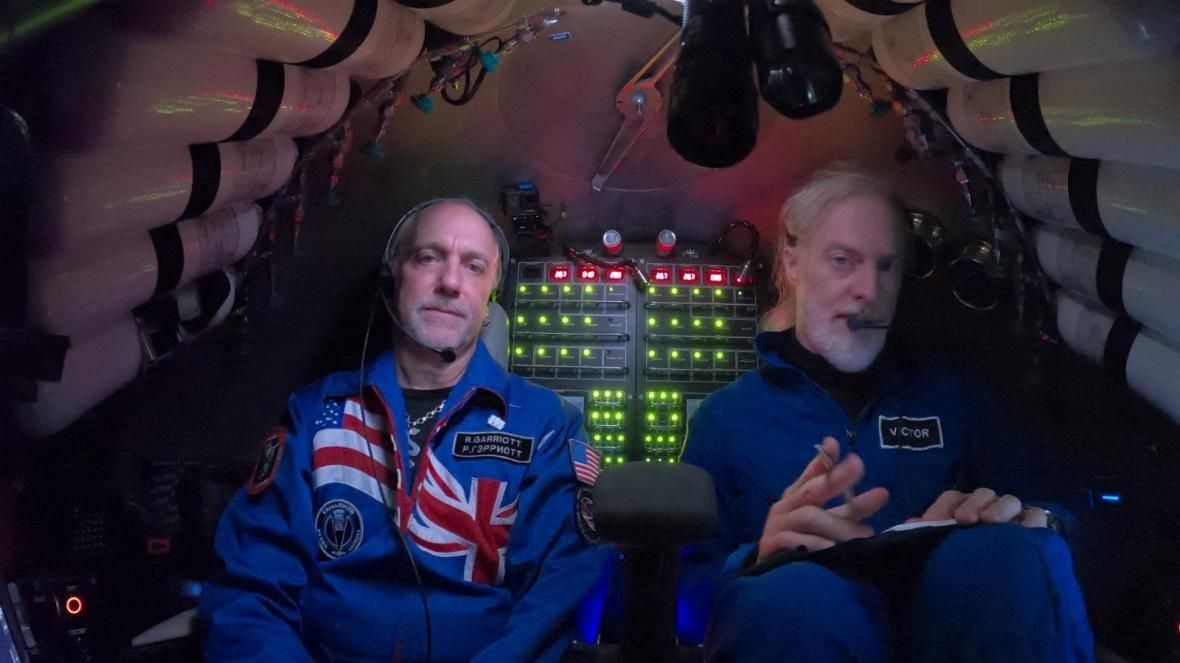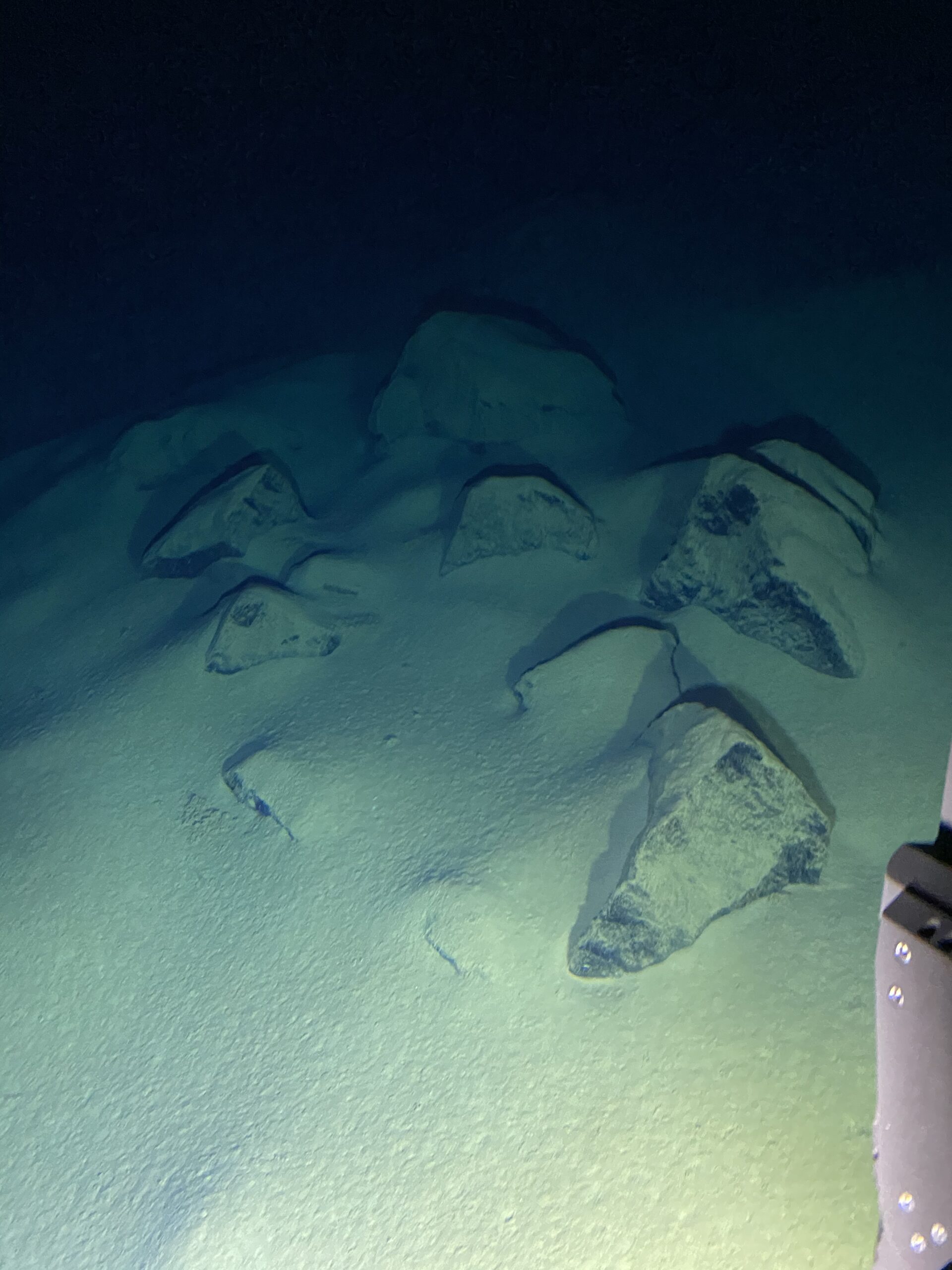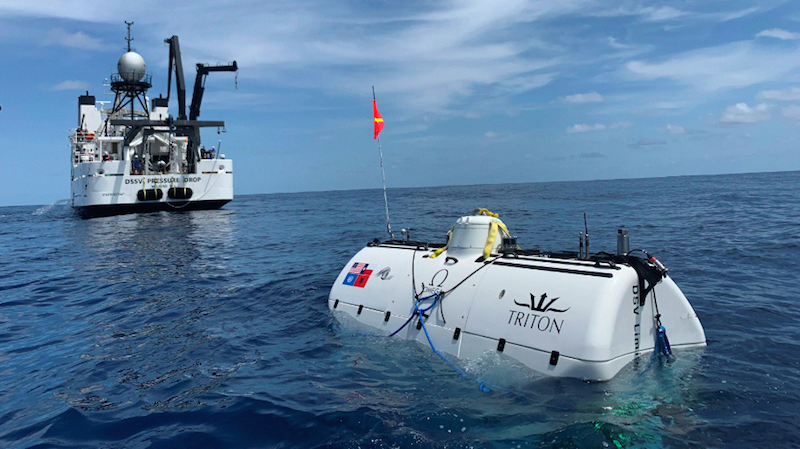Richard Garriott has had the kind of career that kids aim for before the world tells them it’s unrealistic. In addition to his work as a video game creator, Garriott is a lifelong explorer (the new president-elect of the Explorer’s Club, in fact) who has traversed both poles of the earth, traveled to space, and just returned from the deepest part of the ocean. Seriously.
Before his recent descent into the Mariana Trench, Garriott partnered with UK-based organizations The Ideas Foundation and the National Association for the Teaching of English on an undersea cinquain contest. “In the spirit of packing light,” he put out a call for submissions to young poets, and brought all the submitted cinquains with him on his journey, reading aloud and recording the top entries from the ocean floor(!)
We asked Garriott about cinquains, the best places to read and write poetry, the lessons of his years of exploration.
Have you always been a poetry reader? Do you remember the first poem you fell in love with?
RG: Well, I am a huge fan of Shakespeare broadly, and have even built a scale version of Shakespeare’s Glob on my Texas ranch. But the first poem I loved (and still recite), was Lewis Carroll’s “Jabberwocky.” In fact the stories and poems of Lewis Carroll remain on my favorites list.
Which environment is more conducive to reading poetry—under the sea or in space? What about writing it?
RG: Both the depths and space are mighty poetic inspirations. I would say most extreme or novel environments explorers find themselves in are poetically inspiring. The nice thing about diving into the abyss is that after the 4 hours descent, and 4 hours of exploring, it takes 4 hours to rise again back to the surface. That is 4 hours to reflect, read and write. After I recited cinquains for Victor Vescovo, he was inspired to write his own wonderful piece and read it on camera, as a gift back to all the children who wrote cinquains for us to take.
Victor Vescovo’s cinquain:
Down, down
Down, down and down
Into the deep we go
Where light is not, and dark is all
Down, down.
 Richard Garriott and Victor Vescovo in the undersea vessel The Limiting Factor.
Richard Garriott and Victor Vescovo in the undersea vessel The Limiting Factor.
Before the cinquains, have you been able to bring poetry or other books with you on any of your journeys? If so, which?
There is ONE BOOK, I have taken on ALL my expeditions, from safaris down the Amazon, pole to pole, to space and now the deep! It remains my favorite poetic writings. It also happens to be a children’s story called Hubert’s Hair Raising Adventure, written and illustrated by Bill Pete, who went on to become a key collaborator on Walt Disney’s early animations. I have memorized the 40 page book, and recite it during ALL my exploration trips. I took a copy down with me to Challenger Deep, and recited it for Victor Vescovo, as he looked at the wonderful pictures as well.
Are there any lines from the cinquains you read in the course of the contest that stuck with you?
Yikes! They are so diverse it’s hard to select… many were about the dive proper, but many were also more broadly about science and discovery, some fun ones about their own lives. Let me share a couple favorites:
Matilda, age 8 and 3/4 wrote:
Below
The deep, inside
The trench, what monster hides
To eat you up, lurking low in
The Dark?
Saroop, age 11, from Langdon Academy in East Ham wrote:
Science
Biology
Dissecting, discover
Exploring, creating, learning
have fun.
What is something you’ve learned in your exploration that you wish more people knew?
RG: From both the deep looking closely at the most remote and inaccessible place on earth as well as looking down on the earth from space, it was abundantly clear that the impact of humanity is felt all over the entire earth. It is clear we are using far more natural resources than the planet can sustain. From energy to water to food and minerals, finding enough to not need to ration access will be a challenge. On the other side, and again from space to the deep we are polluting every inch from micro plastics I have gathered myself in the waters and bodies of creatures around the planet, to the air pollution visible from space that fills a shocking percentage of the entire tinny bubble of air we live in, it’s shocking to see how completely we have covered the planet in the cast offs of our lifestyles. Yet, there is reason for hope, but only if we finally quit merely talking about it, and act. We must get off of fossil fuels. We must quit dumping in the oceans. We must help humanity find resources from and expand civilization into space.
 Undersea rocks.
Undersea rocks.
Would you write us either a cinquain or another brief formal poem of your choice about your favorite place in the galaxy?
The Stars
Beckon to us
Call us out into space
We may yet live, beyond the earth
New worlds
